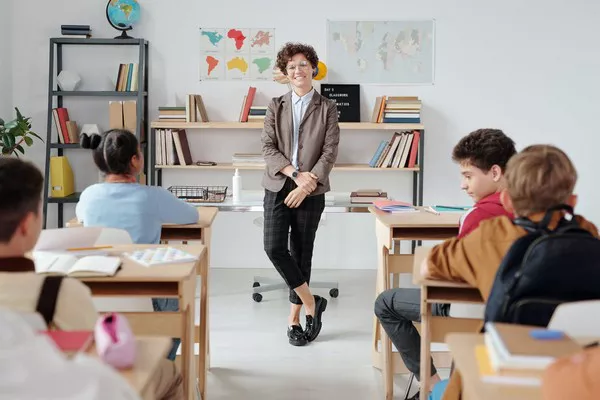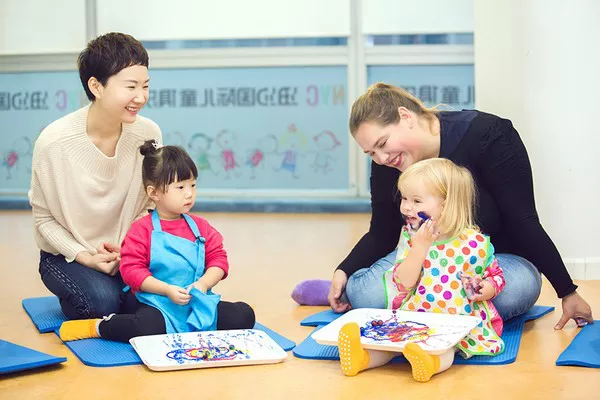Friendship is a vital aspect of human life, providing emotional support, companionship, and a sense of belonging. Among friendships, best friends hold a special place, offering a deeper connection and a unique bond that is both nurturing and fulfilling. Understanding how best friends treat each other can shed light on the qualities and behaviors that sustain these valuable relationships. In this article, we will explore the dynamics of best friendships, the essential characteristics of a best friend, and how these bonds contribute to overall well-being.
The Dynamics of Best Friendships
Best friendships are characterized by mutual respect, trust, and a deep emotional connection. These relationships often develop over time, as individuals share experiences, support each other through challenges, and celebrate successes together. The dynamics of best friendships involve several key elements:
1. Mutual Trust and Respect
Trust and respect form the foundation of any strong friendship. Best friends trust each other implicitly, knowing that they can rely on one another in times of need. This trust is built through consistent behavior, honesty, and reliability. Respect involves valuing each other’s opinions, feelings, and boundaries, and treating each other with kindness and consideration.
2. Open and Honest Communication
Effective communication is crucial in best friendships. Best friends are open and honest with each other, sharing their thoughts, feelings, and experiences without fear of judgment. This level of communication fosters a deeper understanding and connection, allowing friends to support each other more effectively.
3. Empathy and Understanding
Empathy, the ability to understand and share the feelings of another, is a key characteristic of best friends. They are attuned to each other’s emotions and experiences, offering comfort and support during difficult times. This empathy helps to strengthen the bond between friends, creating a safe and nurturing environment.
4. Shared Experiences and Interests
Shared experiences and common interests play a significant role in best friendships. These shared moments create lasting memories and a sense of camaraderie. Whether it’s a shared hobby, a favorite activity, or a significant life event, these experiences help to deepen the connection between best friends.
5. Loyalty and Dependability
Loyalty and dependability are essential qualities in best friends. They stand by each other through thick and thin, offering unwavering support and standing up for one another. This loyalty creates a sense of security and trust, reinforcing the bond between friends.
6. Support and Encouragement
Best friends provide emotional support and encouragement, helping each other to navigate life’s challenges and pursue their goals. This support can take many forms, from offering a listening ear to providing practical assistance or words of encouragement. Knowing that they have someone who believes in them can be incredibly empowering for both individuals.
Essential Characteristics of a Best Friend
Understanding the characteristics that define a best friend can help to identify and cultivate these important relationships. Here are some of the key qualities that best friends typically possess:
1. Reliability
A best friend is someone who can be counted on, no matter what. They are dependable and consistent in their actions, providing a stable presence in each other’s lives.
2. Honesty
Honesty is a cornerstone of best friendships. Best friends are truthful with each other, even when it’s difficult. This honesty fosters trust and helps to resolve conflicts constructively.
3. Non-Judgmental Attitude
Best friends accept each other for who they are, without judgment. They provide a safe space where individuals can be themselves, flaws and all, without fear of criticism.
4. Compassion
Compassion involves being sensitive to each other’s needs and feelings. Best friends show compassion by being there for each other during tough times, offering comfort and understanding.
5. Sense of Humor
A shared sense of humor can strengthen the bond between best friends. Laughter and fun create positive experiences and memories, helping to maintain a light-hearted and joyful connection.
6. Forgiveness
No friendship is perfect, and conflicts or misunderstandings are bound to occur. Best friends are willing to forgive each other and move past these issues, recognizing that the relationship is more important than any single disagreement.
How Best Friends Treat Each Other
Best friends demonstrate their care and commitment through various behaviors and actions. Here are some of the ways in which best friends treat each other:
1. They Listen Actively
Active listening involves fully engaging with what the other person is saying, showing empathy, and providing feedback. Best friends listen to each other without interrupting or judging, making the other person feel heard and valued.
2. They Celebrate Each Other’s Successes
Best friends share in each other’s joys and achievements, celebrating successes as if they were their own. This genuine happiness for each other’s accomplishments strengthens the bond and reinforces positive feelings.
3. They Offer Support During Difficult Times
Whether it’s a personal crisis, a stressful period, or a moment of doubt, best friends are there to offer support. This support can be emotional, practical, or simply being present and available.
See Also: How to Get Closer to Your Partner?
4. They Respect Boundaries
Respecting each other’s boundaries is crucial in maintaining a healthy friendship. Best friends understand and honor each other’s limits, whether it’s about personal space, time, or emotional needs.
5. They Communicate Openly
Open communication is essential for resolving conflicts and maintaining a strong connection. Best friends talk openly about their feelings, concerns, and needs, ensuring that misunderstandings are addressed promptly.
6. They Make Time for Each Other
Quality time is a key aspect of best friendships. Best friends prioritize spending time together, whether it’s through regular meet-ups, phone calls, or shared activities. This time together helps to maintain the connection and create lasting memories.
7. They Show Appreciation
Expressing appreciation for each other is important in any relationship. Best friends regularly show gratitude for each other’s presence and actions, reinforcing the positive aspects of the friendship.
8. They Keep Each Other Accountable
Best friends help each other to stay on track with their goals and commitments. This accountability is provided in a supportive and encouraging manner, helping each person to achieve their best.
The Impact of Best Friendships on Well-Being
Best friendships have a profound impact on overall well-being, providing numerous psychological and emotional benefits. Here are some of the ways in which best friendships contribute to well-being:
1. Emotional Support
Having a best friend provides a source of emotional support, which can help to buffer against stress and adversity. This support helps individuals to cope with challenges and maintain a positive outlook.
2. Increased Self-Esteem
Best friends offer validation and encouragement, which can boost self-esteem and self-worth. Knowing that someone values and believes in them can help individuals to feel more confident and capable.
3. Improved Mental Health
Strong friendships are associated with better mental health outcomes, including lower levels of depression and anxiety. The companionship and support provided by best friends can help to alleviate feelings of loneliness and isolation.
4. Enhanced Life Satisfaction
Best friendships contribute to overall life satisfaction by providing a sense of belonging and fulfillment. These relationships enrich life experiences and create a sense of purpose and meaning.
5. Greater Resilience
Having a best friend can enhance resilience, helping individuals to bounce back from setbacks and challenges. The support and encouragement of a best friend can provide the strength needed to persevere through difficult times.
FAQs
What are the signs of a true best friend?
A true best friend is reliable, honest, non-judgmental, compassionate, and forgiving. They listen actively, celebrate your successes, support you during tough times, respect your boundaries, communicate openly, make time for you, show appreciation, and keep you accountable.
How can I strengthen my friendship with my best friend?
To strengthen your friendship, prioritize quality time together, communicate openly, show appreciation, offer support, respect boundaries, and celebrate each other’s successes. Building trust and maintaining empathy are also crucial.
What should I do if I have a conflict with my best friend?
Address conflicts with honesty and openness. Listen to each other’s perspectives, avoid blame, and seek to understand the underlying issues. Apologize if necessary, and be willing to forgive and move forward.
How can I support my best friend during a difficult time?
Offer a listening ear, provide emotional support, and be present. Practical assistance, such as helping with tasks or offering a distraction, can also be helpful. Show empathy and compassion, and reassure them of your commitment to the friendship.
Can best friends have disagreements?
Yes, disagreements are a natural part of any relationship. The key is to address them constructively, with open communication and a willingness to understand each other’s perspectives. Best friends can navigate disagreements while maintaining a strong bond.
Is it normal for best friends to grow apart?
It is possible for best friends to grow apart due to life changes, different priorities, or evolving interests. Maintaining open communication and making an effort to stay connected can help to sustain the friendship. However, it’s also important to recognize that some friendships may naturally evolve over time.
Conclusion
In conclusion, best friends treat each other with trust, respect, empathy, and support. These relationships are characterized by open communication, shared experiences, loyalty, and a deep emotional connection. Best friendships contribute significantly to overall well-being, providing emotional support, enhancing self-esteem, improving mental health, and increasing life satisfaction. By understanding and nurturing these important qualities, individuals can cultivate and maintain fulfilling and enduring best friendships.
Related topics:




























